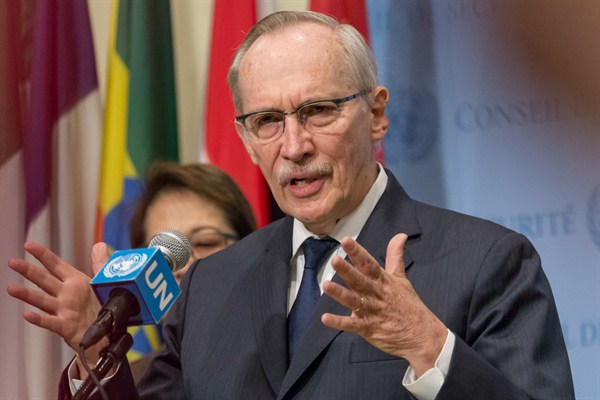Diplomacy is a mendacious business. “An ambassador is an honest man sent to lie abroad for the good of his country,” one 17th-century wit supposedly quipped. Diplomats are still expected to massage, twist or conceal facts to suit their countries’ national interests. By contrast, international institutions are generally meant to make diplomacy a marginally more honest business by upholding higher standards of objectivity.
Organizations like the United Nations and World Bank draw a lot of their credibility from the assumption that they tell the truth. In the last century, the League of Nations and then the U.N. pioneered the global collection of social and economic data to advance international development. Today, in an age when there is a surplus of data, U.N statistical publications may not seem quite so thrilling. Yet a tough analysis from a body like the International Monetary Fund on the impact of an issue like Brexit can still make headlines.
The same is true in the scientific sphere. The Intergovernmental Panel on Climate Change (IPCC) galvanized debates on global warming by amassing enormous amounts of data and analysis on the threat. There is currently a flood of new work on data-gathering associated with the U.N.’s Sustainable Development Goals, as economic boffins try to work out how to measure global progress toward these new targets.

